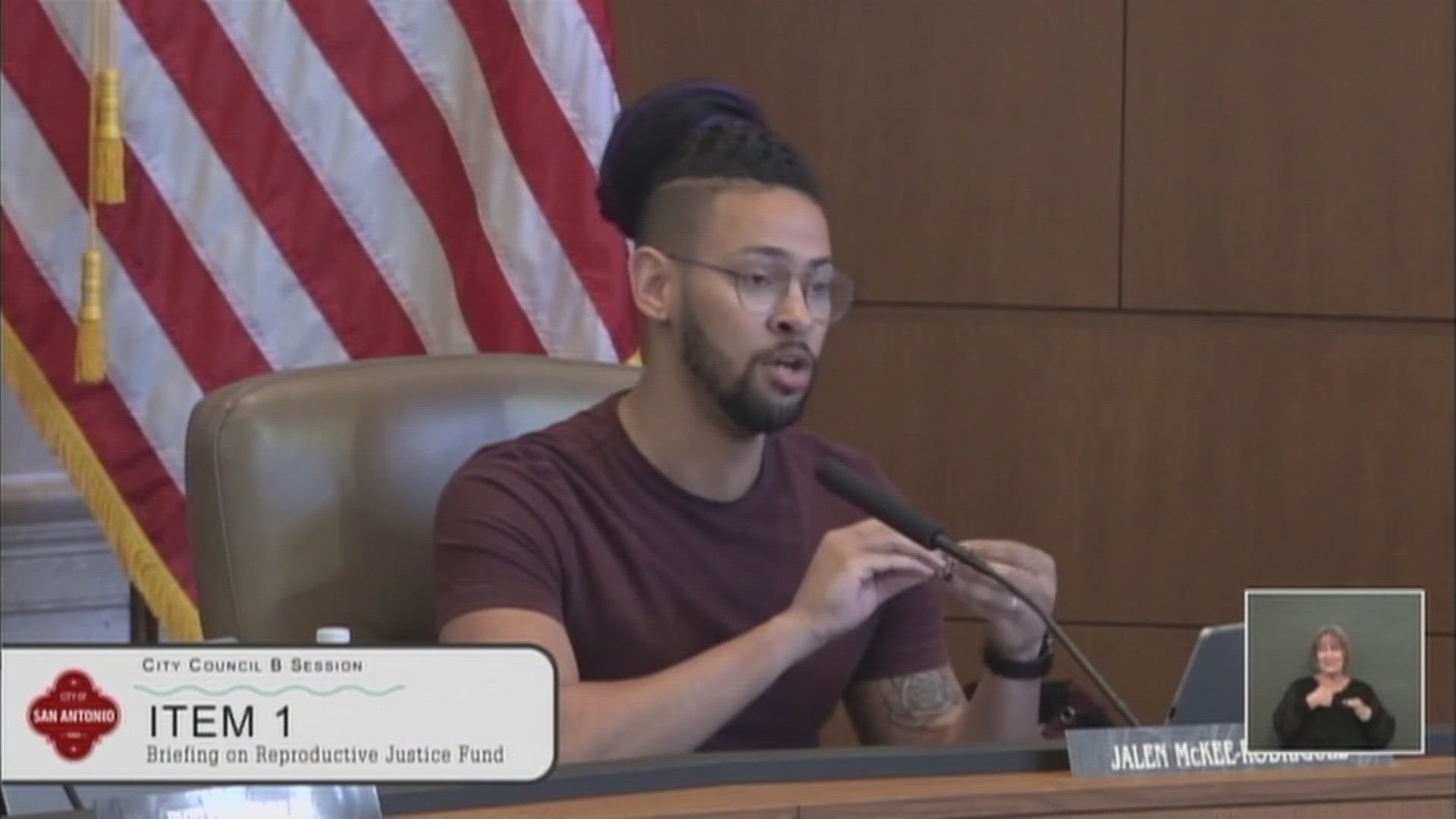SAN ANTONIO — Last fall, the City of San Antonio budgeted $500,000 in what it dubbed the Reproductive Justice Fund, money set aside for reproductive education and rights. But no decision has been made yet on how exactly that money should be spent, and the Metropolitan Health District was tasked with providing recommendations.
At Wednesday's City Council meeting, Metro Health identified multiple health gaps, including access to contraception, access to prenatal care, screenings and care for sexually transmitted infections, and access to abortions prior to Dobbs being overturned in the summer of 2022.
Based on that data, Metro Health presented current needs and a breakdown of how the money should be spent.
"Public health is always going to emphasize the upstream initiatives as a way to reduce the need for downstream care," said Dr. Junda Woo, Metro Health medical director. "If downstream in this case means direct services once somebody already is pregnant, has a sexually transmitted infection, has cervix precancer, what's most upstream from that is going to be economic stability and healthy relationships. That's our foundation for prevention. Then, midstream is access to a trusted medical provider, a full range of family planning options without bias or coercion."
Woo recommended that the largest amount be spent on upstream and midstream efforts, while 20% – or $100,000 – be spent on direct services. Those include transportation to out-of-state abortion care.
Most council members agreed with the health district's recommendations.
"My firm commitment is that these funds be used to help women make choices about their bodies, about their health and about their future," said Melissa Cabello Havrda, who represents District 6. "That includes access to options they can only get outside of Texas.”
Councilmembers Sukh Kaur of District 1, Teri Castillo of District 5 and Jalen McKee-Rodriguez of District 2 all suggested distributing even more than $100,000 of the $500,000 allotment to direct services.
"This fund was created to address the crisis of lack of access to care due to Texas’ landscape for those who choose to be parents, and those who choose not to be,” McKee-Rodriguez said.
Some leaders on City Council, however, opposed funding transportation outside of Texas to abortion care. Among them was Marc Whyte of District 10, who has been vocal about the creation of the Reproductive Justice Fund since the very beginning.
"We already spend more than $16 million a year on women's health services," Whyte said. "If we want to spend $500,000 more, I'm all for that. But not for abortion.”
Anti-abortion groups did sue the City of San Antonio shortly after the fund was allocated.
City Council members Manny Pelaez and John Courage, who have both announced their intent to run for mayor next year, agreed with Whyte's stance to not fund out-of-state abortion care.
"I don’t think it’s something I would be supportive of, spending city tax dollars in enabling a woman to go and have an abortion,” Courage said.
The City of Austin and Harris County do have similar existing "reproductive justice funds." Austin does not fund out-of-state travel for abortion care at this time, due to the changes in legal landscape. Harris County, meanwhile, has not released detailed information on which organizations received funding and how that funding will be used.
Metro Health will now prepare a request for proposal (RFP), after which the council will have one more meeting to provide input. Then the RFP will be issued. Based on those responses, City Council will vote on how the money should be spent.
The city plans on implementing the funds by 2025.
>TRENDING ON KENS 5 YOUTUBE:

